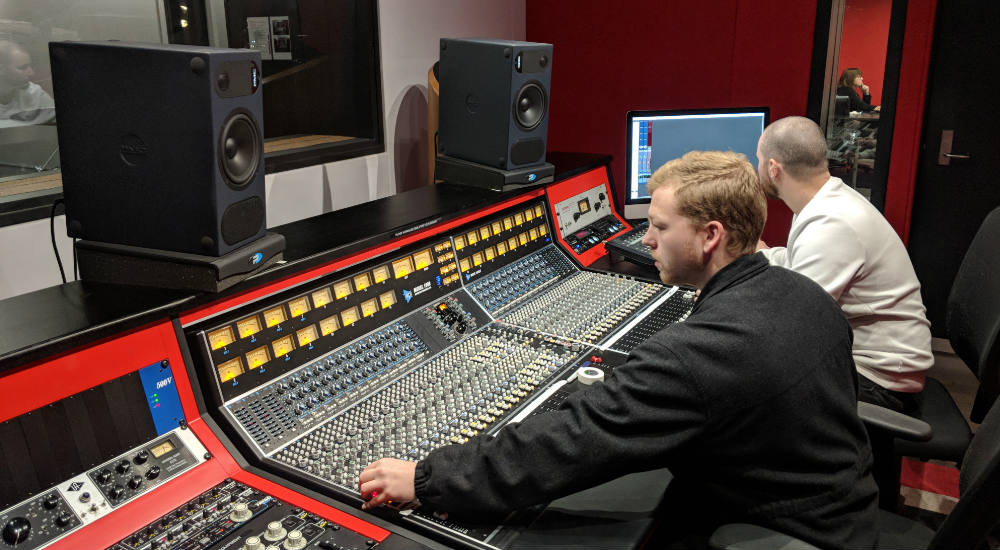1 . When do I get access to the equipment?
Many institutions will make you wait several months into your qualification until you get access to the higher quality equipment. If you’re not on the gear in the first month, I’d be questioning how you’ll develop the skills necessary to thrive in such a competitive industry.
2. How much do I get to use the gear?
Mastery comes from practice, and practice comes from actually pushing the faders, setting up the microphones, and producing music. Theory forms the spine, but practice forms the hands to create great music. Each theoretical component should be married with a practical element if you’re interested in making a future working in the industry.
3. What kind of music do I get to work on?
When you’re developing a career in the audio industry, you’ve got to focus on a diverse range of music, as well as developing your own material. An institution should show you lecturers with a range of different musical backgrounds, and encourage you to work on your own portfolio of music.
4. What equipment will I need to study here?
While having your own system can speed up your workflow, the combination of after-hours access and a computer stocked with all the software you need will facilitate your course and the development of your own work, without you having to spend a cent. You might want to look at hard drive to backup all your hard work.
5. What kind of plug-ins do you have?
Because of the rise of digital technology in the audio industry, it is just as important for a school to have a great plug-in collection as it is to have a great analogue collection. While all the big analogue consoles are nice, learning how to use plug-ins and hardware that actually exist in the industry is paramount.
6. What are you course’s major focus points?
A course can be deep or wide. A deep course focuses on specific skills, preparing you for one specific job. A wide course covers a range of potential applications of the skills being developed. Because of the changing jobs in the audio industry, the field you start the course in may not be the one you end up in, so it is important to be across multiple fields.
7. TAFE or Higher Education?
While a Bachelor’s degree offers a complete theoretical background to your industry of choice, a Diploma or Advanced Diploma can offer a hands-on, technical approach to your interests. If you’re looking into the depths of theoretical concepts and academic pedagogy, think Bachelor. If you’re looking to get onto the gear and develop the technical know-how to run a successful business, look at the Diploma course.
8. What happens when I graduate?
If your institution of choice doesn’t allow you any alumni access or access to current hosted masterclasses with the industry professionals they have coming in after you’ve graduated, run. An institution should be looking out for you with mentorship and job opportunities, even after you graduate.
9. How many students are in each class?
Gone are the days where a hundred students sit and take notes in a lecture theatre. In learning the secrets, a master-apprentice approach should be taken, where students work to develop a portfolio or body of work they are actually interested in. With too many students, lecturers will not be able to connect with the interests of any particular student. Small class sizes allow you to develop together, challenging and working with each other to further your skills and education.
10. How important is a ‘piece of paper’/qualification in getting a job in the industry?
While a Bachelor’s degree is technically a higher qualification, this is only relevant within academic circles. In audio, proficiency, competence and speed are crucial to success.
To pursue your dream career in the audio industry, build your skills at Melbourne’s Abbey Road Institute. Find out more at their Open Day on Saturday January 19 or visit abbeyroadinstitute.com.au.

